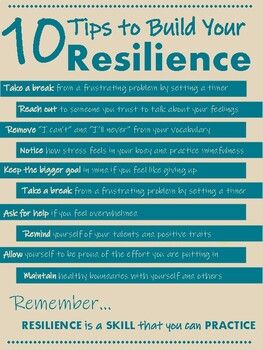Life is full of challenges and obstacles that can often leave us feeling overwhelmed, drained, and defeated. However, building resilience is key to overcoming these difficulties and bouncing back stronger than ever. Resilience can be defined as the ability to adapt and cope with adversity, stress, and trauma. It allows us to maintain psychological well-being, navigate through tough times, and ultimately thrive.
Why is Resilience Important?
Resilience is an essential life skill that helps us develop a positive mindset, cultivate mental and emotional strength, and maintain overall well-being. By building resilience, we become better equipped to handle hardships, setbacks, and unexpected change. It enables us to bounce back from failures, learn from our mistakes, and grow stronger through adversity. In essence, resilience empowers us to face life’s challenges head-on and come out the other side stronger and more capable than before.
Steps to Building Resilience:
Foster Positive Relationships:
Nurturing a support network of friends, family, and mentors is critical in building resilience. Surround yourself with people who uplift and inspire you, and who offer a listening ear during tough times. A strong support system provides emotional support, practical advice, and a sense of belonging, all of which contribute to resilience.
Develop Effective Coping Mechanisms:
Having healthy coping mechanisms is crucial for managing stress and building resilience. Engage in activities such as exercise, meditation, journaling, or creative outlets that help you relax and process your emotions. Find what works best for you and make it a regular part of your routine.
Cultivate a Growth Mindset:
A growth mindset involves embracing challenges as opportunities for growth and learning. Rather than viewing failures as setbacks, see them as valuable lessons that contribute to your personal development. Cultivate a positive attitude towards change and embrace the process of learning and self-improvement.
Practice Self-Care:
Self-care is essential for building resilience. Take time to prioritize your physical, mental, and emotional well-being. This can include activities like getting enough sleep, eating nutritious meals, engaging in hobbies, and practicing mindfulness. Remember, self-care isn’t selfish; it’s necessary for maintaining resilience.
Set Realistic Goals:
Setting realistic goals can help you maintain focus, motivation, and a sense of accomplishment. Break larger goals into smaller, attainable steps, and celebrate each milestone along the way. By setting achievable goals, you can build resilience by continuously challenging yourself and achieving meaningful progress.
Adopt a Positive Self-Image:
Believing in yourself and your abilities is key to building resilience. Acknowledge your strengths, embrace your flaws, and practice self-compassion. Avoid negative self-talk and instead, focus on your achievements, skills, and qualities that make you unique. Building a positive self-image strengthens resilience by boosting confidence and self-worth.
Seek Professional Help When Needed:
There may be times when building resilience requires professional support. Do not hesitate to reach out to therapists or counselors who specialize in helping individuals navigate through tough times. These professionals can provide guidance, tools, and strategies to boost your resilience and overcome any challenges you may face.
Conclusion
Building resilience is an ongoing process that requires consistent effort, self-reflection, and the willingness to adapt. By following these tips, you can develop the mental and emotional strength necessary to overcome life’s challenges and thrive in the face of adversity. Remember, resilience is not about avoiding hardships, but rather, embracing them as opportunities for growth and personal development. The journey towards resilience may not always be easy, but the rewards are immeasurable.

